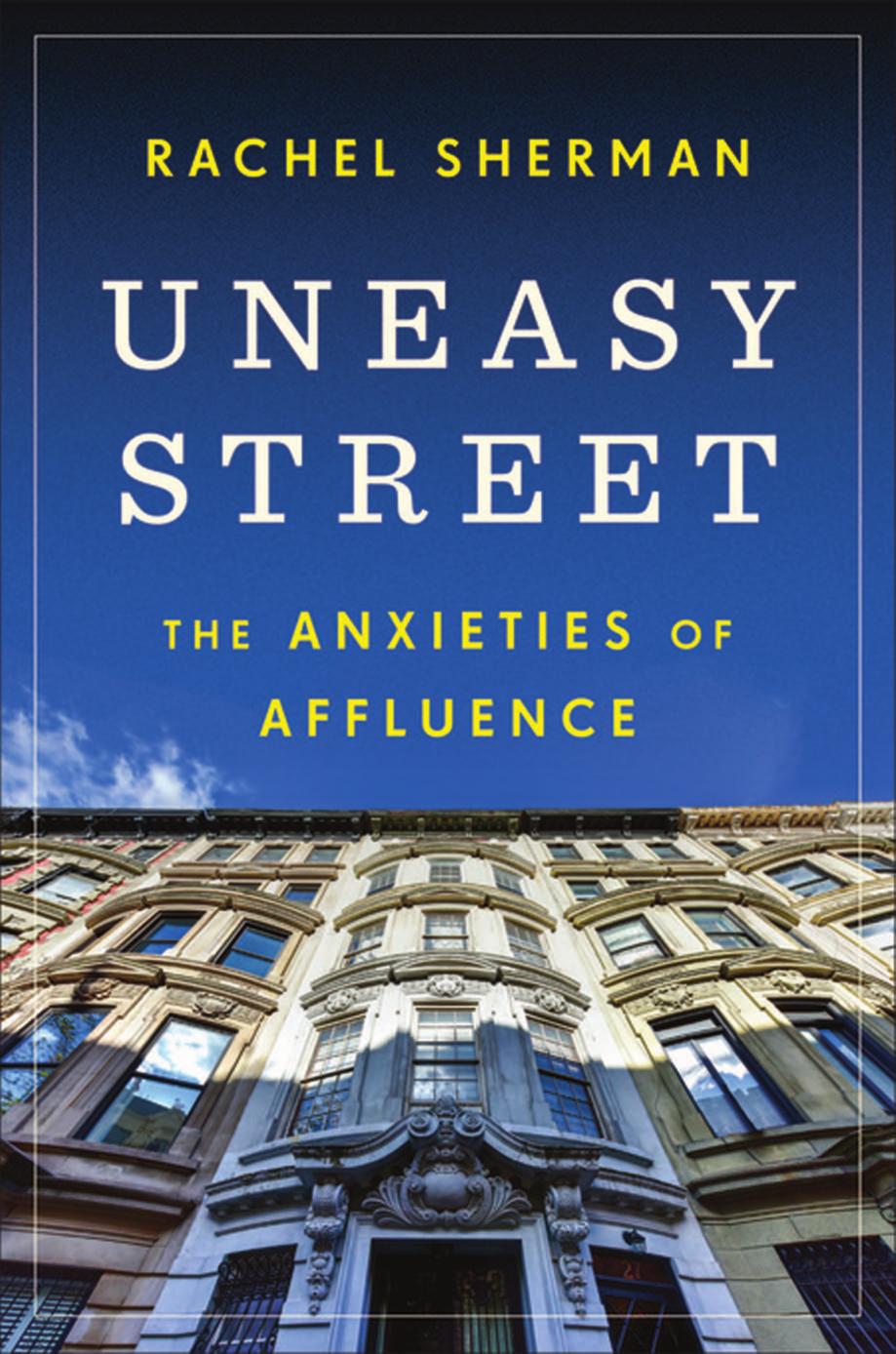Uneasy Street: The Anxieties of Affluence by Rachel Sherman

Author:Rachel Sherman [Sherman, Rachel]
Language: eng
Format: epub, pdf
Tags: Social Science, Social Classes & Economic Disparity, Sociology, Urban, Popular Culture, General
ISBN: 9780691165509
Google: RWyYDwAAQBAJ
Amazon: 0691165505
Publisher: Princeton University Press
Published: 2017-08-29T00:00:00+00:00
Giving back, like working hard and consuming prudently, involves emotion, disposition, and behavior. It means feeling aware and appreciative, being “nice” to others, and, to different extents, giving time and money. These practices and affects are publicly visible to varying degrees. Awareness in particular is private—it keeps privilege visible to the privileged individual herself without necessarily making it visible to others. Actually donating time and money is often, though not always, more public. The publicness of my interviewees’ identities as wealthy people affects how they choose to contribute.
Regardless of how they give back, the people I interviewed do not “give up” anything of material significance; their giving, even in large amounts, does not diminish their own comforts. An architect I interviewed described a wealthy liberal couple who were his clients: “They’re the kind of people that don’t pass a homeless person without giving him ten dollars. They just feel guilty about having so much, in a world where people don’t. They’re politically active, and this and that and the other thing. And ultimately, yeah, it doesn’t stop them from buying an Armani outfit. … They don’t deprive themselves of anything, either. They’re not flying coach.” On the other hand, it is not clear that their giving up more would be morally better.
And “giving back,” in whatever form it takes, ultimately does not lead to broad structural transformation. For most of the people I talked with, this kind of change was not the goal; “giving back” was a less conflicted, more taken-for-granted part of their identities as good people. For those who would have wanted more radical change, it was frustrating not to be able to make it. But ultimately they accepted these limits—an acceptance facilitated by becoming parents and the slow ratcheting up of “needs.”
The legitimately entitled self—hardworking, reasonably consuming, and contributing—is always acting in and constituted by relationships with other people, especially in families. The next two chapters address how these issues of disposition and worth played out in relations with partners and children.
Download
Uneasy Street: The Anxieties of Affluence by Rachel Sherman.pdf
This site does not store any files on its server. We only index and link to content provided by other sites. Please contact the content providers to delete copyright contents if any and email us, we'll remove relevant links or contents immediately.
International Integration of the Brazilian Economy by Elias C. Grivoyannis(111064)
The Radium Girls by Kate Moore(12033)
Turbulence by E. J. Noyes(8055)
Nudge - Improving Decisions about Health, Wealth, and Happiness by Thaler Sunstein(7711)
The Black Swan by Nassim Nicholas Taleb(7135)
Rich Dad Poor Dad by Robert T. Kiyosaki(6642)
Pioneering Portfolio Management by David F. Swensen(6303)
Man-made Catastrophes and Risk Information Concealment by Dmitry Chernov & Didier Sornette(6022)
Zero to One by Peter Thiel(5805)
Secrecy World by Jake Bernstein(4755)
Millionaire: The Philanderer, Gambler, and Duelist Who Invented Modern Finance by Janet Gleeson(4481)
The Age of Surveillance Capitalism by Shoshana Zuboff(4301)
Skin in the Game by Nassim Nicholas Taleb(4253)
The Money Culture by Michael Lewis(4211)
Bullshit Jobs by David Graeber(4195)
Skin in the Game: Hidden Asymmetries in Daily Life by Nassim Nicholas Taleb(4009)
The Dhandho Investor by Mohnish Pabrai(3770)
The Wisdom of Finance by Mihir Desai(3751)
Blockchain Basics by Daniel Drescher(3585)
